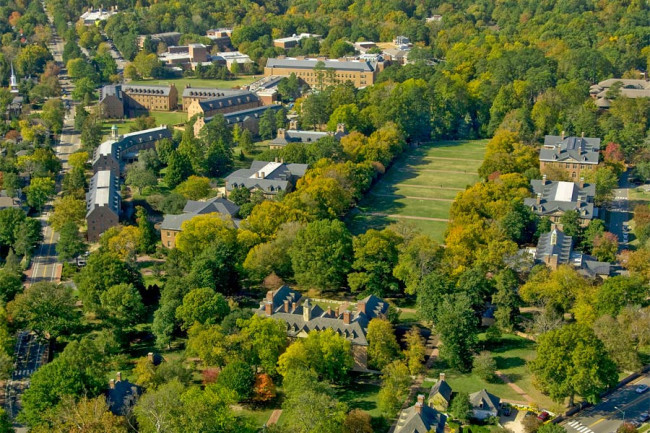Today, residents of Brown Hall at the College of William and Mary live directly above the forgotten Bray School, which was founded in 1760 as a charity institution to provide education for enslaved and free children in Williamsburg. Uncovering the Bray school is only a small part of the work of the Lemon Project: A Journey of Reconciliation.
The Lemon Project, founded in 2009, is an ongoing effort to uncover the College’s racial past.
Managing Director of the Lemon Project and history professor Jody Allen, along with graduate students Sarah Thomas and Ari Weinberg, runs the Project, which studies the enslaved people that were once owned by the College.
This weekend, the Lemon Project held a consortium for a group of universities studying the history of slavery and the establishment of higher-education institutions. Representatives from other colleges met in Williamsburg from Sept. 30 to Oct. 1 for this event.
Lemon, the namesake of the Project, was a slave held by the College who passed away in 1817.
The College is not the first school to revisit its complicated racial past in recent years.
Other Southern institutions, including Georgetown University, Washington and Lee University and the University of Virginia have come together to form Universities Studying Slavery, a group which seeks to better understand the role slavery played in the establishment of their respective universities.
“We have a saying, ‘One Tribe, One Family,’ and quite often students say, ‘Not my family,’” Allen said. “We want students to feel like they’re a part of this.”
One of the goals of the Lemon Project is to institutionalize Lemon’s story and the study of slavery and racial injustice at the College.
A similar process is underway at U.Va., according to associate professor of history and Assistant Dean at U.Va. Kirt von Daacke.
“This education question is really important to us at U.Va.,” von Daacke said. “We designed a two-part course for first and second year students … and we called it ‘Slavery and Its Legacy’ … We’re now developing an advanced seminar course so students can actually dig deeper into slavery and its legacy.”
In 1838 Georgetown University sold 272 slaves for a total of $3.3 million in order to pay off its debt.
Representing Georgetown, Eric Woods said that Georgetown is working to find a balance when discussing racial injustice.
“We’re trying to figure out how to have discussions without making one class feel guilty and another feel like they have to carry the burden of the past,” Woods said.
Moving forward, programs like the Lemon Project are trying to involve more students from their own institutions and draw in members of the local community to drive the project’s efforts forward.
This is a crucial project for expanding awareness of the history of the College, according to Lemon Project participant Edith Herd.
“If we don’t do this we are going to lose a lot of the history for Williamsburg,” Herd said. “We have to make sure we keep our history alive … There were Irish, there were the Quakers. We all built America, okay? So we need to get together, put your little piece in, put your little piece in, and let’s become a group. Because when the chips are down, we’re going to have to get together.”
Herd is very active in bringing members of the community onto campus to talk to her and Allen about their lives and to give oral histories.
Herd described a time when she drove an elderly couple to the front door of Earl Gregg Swem Library to speak about her experiences growing up in Williamsburg.
“Everywhere I go I talk about [the history], and it’s something that I think we all should talk about,” Herd said. “This is not a secret, because it’s about people and things that happened. And it’s a beautiful history, really, it’s a beautiful history and it’s not as ugly as people want to make it.”
According to participants in the Universities Studying Slavery Consortium, projects like the Lemon Project require passion and a stubborn determination.
“I had a desire to make a difference in African-American youths’ lives because I strongly and passionately believe that if we know our histories, we can be stronger individuals because of it,” Allen said. “I came with that kind of passion about getting the word out.”

